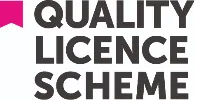
Diploma in Child Psychology
Child psychologists enjoy a career that is not only financially rewarding, but uniquely satisfying and fulfilling at the same time. There’s absolutely nothing more gratifying than knowing what you do on a daily basis is proactively and positively assisting with the strong and healthy development of countless children. To gain a better understanding of child psychology in general is to gain an extraordinary window into the developing minds of babies, toddlers, older children and teenagers alike, this diploma in child psychology can be the right choice for you if you wish to work with children in any role; a teacher, a career, teaching assistant, social care worker. The course explores methods theories and concepts used by psychologists to develop real insight into the child personality.
This Diploma in Child Psychology, has being designed to provide a comprehensive foundation upon which to build an extraordinary career in this uniquely rewarding specialism. The skills and talents of qualified child psychologists are in constantly high-demand all over the world, leading to outstanding life-long career prospects for those with the relevant backgrounds. Over the course of 12 intensive modules of child psychology diploma, candidates are taken from a base-level introduction to the concept of contemporary child psychology right through to attachment formation, childhood developmental influences and issues associated with the various stages of childhood.
Along with a series of crucially important theoretical concepts, course content covers language development, personality development, moral development, emotional development and social development. Successful candidates will benefit from the skills, important industry insights and confidence required to explore an extraordinary range of career opportunities, or pursue further education at a higher level.
The Diploma Child Psychology, is delivered over 09 modules:
Module 1 - Introduction to Child Psychology
The first module of the course introduces the subject of child psychology from a contemporary perspective, outlining key developmental stages, why childhood development and growth are two entirely different subjects and the important role the child psychologist plays in nurturing and assisting strong and healthy growth and development.
Module 2 - The Formation of Attachments (1)
Course content throughout the subsequent two modules focuses largely on the formation of attachments, incorporating an introduction to Bowlby’s Attachment Theory and an overview of the influences and effects of attachment. Additional theories explored include evolutional theory and the maternal deprivation hypothesis.
Module 3 - The Formation of Attachments (2)
The third module continues with a broader look at a series of important hypotheses and theories related to attachment formation, including Spitz’ Studies of Children in Institutions and Harlow’s Studies of Monkeys. A number of important internal working models are also introduced.
Module 4 - Consequences of Breakdowns in Attachments
Course content in Module 4 turns attention to the potential consequences of breakdowns in attachments, outlining the causes, effects and long-term impact attachment breakdowns can have. Candidates investigate a variety of childhood adjustment factors, how childhood development can be affected by foster care and the effects of bereavement on children.
Module 5 - Influences on Development
The fifth module explores a variety of influences on development, guiding candidates through a series of factors that are known to impact development both positively and negatively. The subjects of cognitive and social development are investigated both independently and in conjunction with one another.
Module 6 - Social and Emotional Development
Course content in Module 6 introduces emotional development and social development, breaking each down into its respective stages and investigating socialisation in-depth. Candidates are guided through a variety of external pressures and factors that can have a positive or negative influence on emotional and social development.
Module 7 - Personality Development
The following unit focuses more specifically on the development of personality in children. Along with an overview of several key hypotheses, candidates investigate personality manifestation, overall character development in children and a variety of environmental influences that can affect and impact development of personality.
Module 8 - Language Development
Childhood communication forms the primary focus of Module 8, in which essential speech and language development theory is introduced and explored. Along with examining important childhood communication evolution theory, candidates also explore a variety of childhood speech communication difficulties and are provided with an overview of general lexical development theory.
Module 9 - Moral Development
Moral development throughout childhood is explored in-depth throughout Module 9, which covers a number of important subtopics including the development of moral reasoning, an overview of the key moral growth stages during childhood and a series of key insights from Kohlberg's Stages of Moral Development.
OHSC Certificate of Completion - Digital certificate
Digital certificate - Included.
Quality Licence Scheme Certificate of Completion - Hard copy certificate
Hard copy certificate - £85
Note: A nominal fee of £9.99 covers the delivery charge within the United Kingdom and a nominal fee of £19.99 covers the delivery charge outside the United Kingdom.



![<php echo $related_row['name']; ?>](https://www.oxfordhomestudy.com/images/subject/1709826618Childpsychologyendorsed2.webp)
![<php echo $related_row['name']; ?>](https://www.oxfordhomestudy.com/images/subject/1709826633Childpsychologyendorsed3.webp)
![<php echo $related_row['name']; ?>](https://www.oxfordhomestudy.com/images/subject/1709826655Childpsychologyendorsed4.webp)
![<php echo $related_row['name']; ?>](https://www.oxfordhomestudy.com/images/subject/1709826670Childpsycholoigyendorsed5.webp)